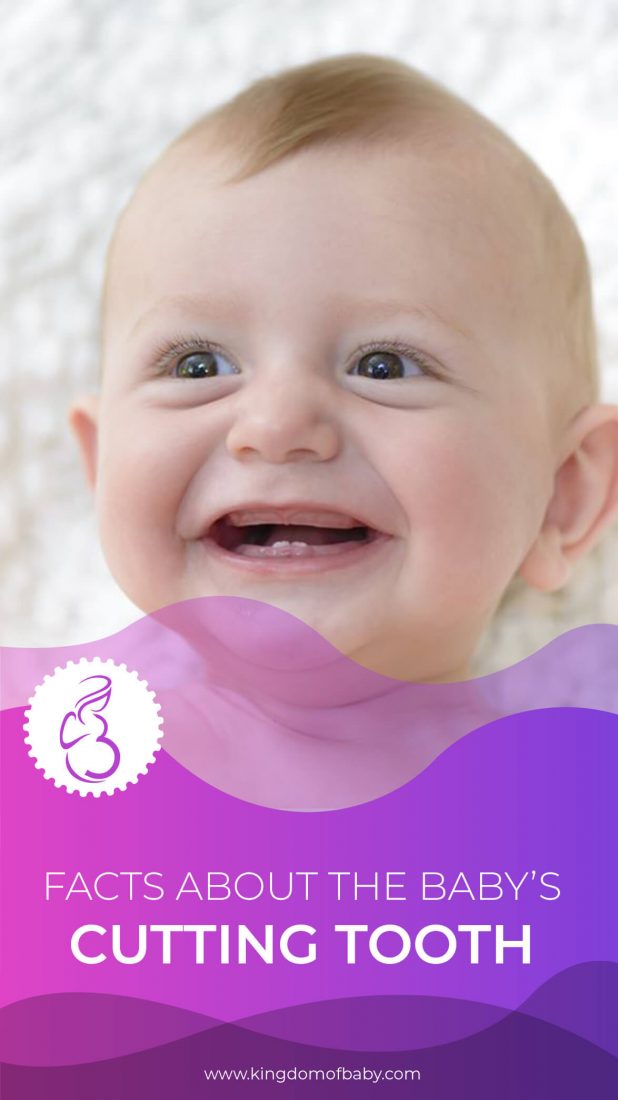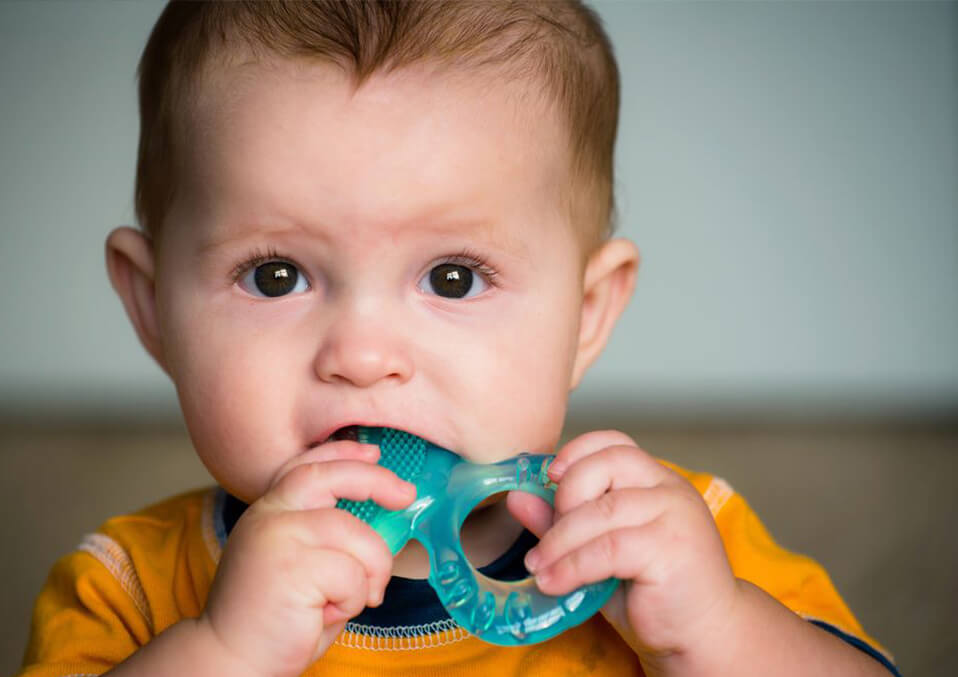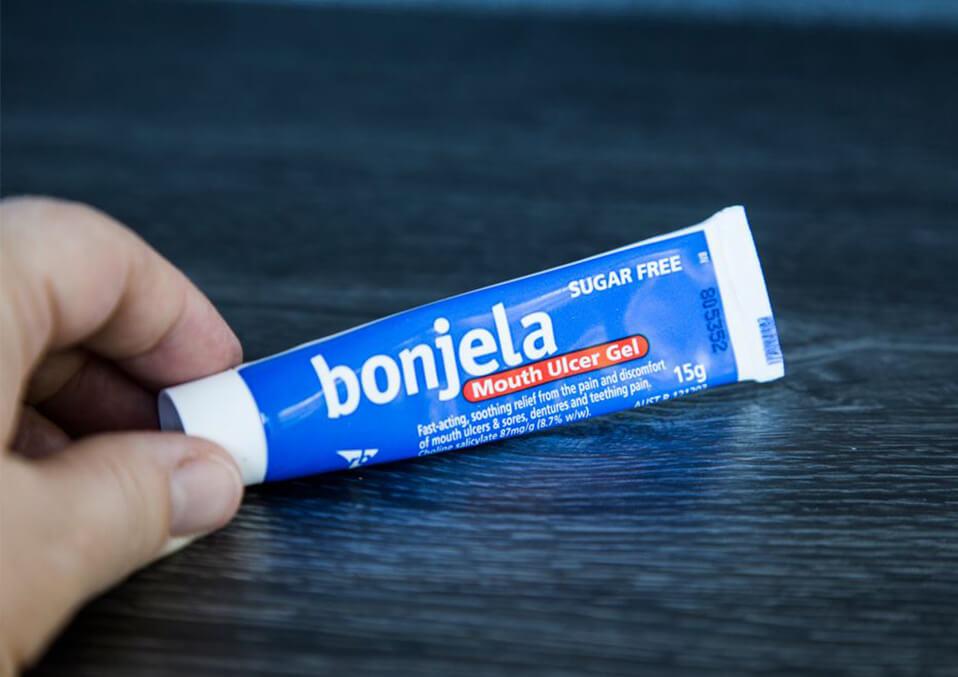
Just like the baby’s first crawl and baby’s first walk, the first tooth is also a big event in your baby’s early life. There is an unpredictable time as to when a baby’s first tooth may appear because, for some babies, they will not be able to get any teeth by their first birthday yet. A cutting tooth for babies may be uncomfortable, so this article aims to give parents tips and advice on how to handle situations when the baby is teething already. The more you discern about teething, the better you can help your baby get over it.
What is teething?
It’s the process in which a baby’s teeth go off or erupt, the gums. It is also referred to as “cutting” of the teeth and it’s medically termed as odontiasis.
Signs of teething:

It’s not difficult to state when your baby begins his teething. Babies may be irritable during the day and you baby would most likely experience sleepless nights. So as parents, you might also experience their pain as you must be very patient with nursing them.
It is most likely that babies begin to teeth between four to seven months. At around three months, babies start exploring, but some babies start later. The signs aren’t the same for every baby but consider these as a majority reason:
- Babies experience swollen and tender gums
- Keeps on crying
- They may also have a slight fever
- Desires to chew on hard things
- Too much drooling
- Sleeping and eating patterns changes
- Loss of appetite
- Restless due to pain
These symptoms may happen to be normal but it would be very hard to see your baby cry every now and then because he or she was teething. It can be painful, but it doesn’t really make the baby very sick. But if the things that your baby is going thru were in contrast to what was written above, just like high fevers, diarrhea or presence of rashes, call the pediatrician right away. It’s safer that way.
Timeline of teething

Babies would most likely begin to teethe from four months to seven months of age. It can also take place late or early. It varies to the baby’s body. The baby’s teeth will most likely appear within the following time:
- 4-7 months: When a baby’s teething development begins
- 8-16 months: The time when the baby’s upper-mid teeth will also emerge and later in this period, their bottom and upper teeth right next to the middle would most likely emerge
- 13-23 months: The baby’s molar will appear at the bottom
- 23-31 months: This is most likely the final stage. This stage, the next molars will come out at the bottom and top around the same time
How long does teething last?
Babies will have inconstant discomfort a few days before tooth will actually come out the gum line. Most babies are bothered by this movement of their teeth. There is no exact time as to when the teething would last, but most professionals have projected and estimated that it can emerge anytime in between one to seven days per tooth. On the other hand, teething indications normally ends in a few days. If you happen to notice that the baby is still feeling a little distress for an extended period of time, then you better have him checked up. He might have any other condition aside from teething. At least if he has any condition, you can prevent it earlier.
How to ease the pain of a teething baby

Your baby might have sore or swollen gums when the teeth begin to come out. The child can’t say anything and all you need to do is to be empathic. These are some ways to help the baby lessen the pain whenever he is teething, these are:
- To gently rub their gums with you clean finger
- A small cool spoon would also be a good thing to rub the gums
- Let your baby bite a clean teether for your child to chew on
- Teethers should be solid rubbers and avoid liquid occupied the solid ring
Teething medicines

Remedies that you rub on your baby’s gums to end the pain of teething may just be temporary. A small dose of a children’s pain reliever such as ibuprofen or acetaminophen may help the baby. When letting your child take medicines, always remember to have the doctor’s prescription. Ask the baby’s pediatrician before giving them any medication, and follow instructions as to what the doctors will instruct.
Importance of dental appointment for teething babies
Making your baby’s first dental appointment after the tooth’s coming out is very important. Parents can also make appointments on or before the baby’s birthday. Why is it important to visit a pediatric dentist? Because he will make sure all teeth are developing normally and to check that there are no dental problems.
Dentists will also give you useful advice on the proper hygiene of the baby. Regardless of what the baby is going through, whether it’s a teeth problem or not, one thing is for sure, all health issues of the baby must be observed properly. They are young and fragile. They need all the medical attention more than we do.
Wrapping up
There can never be a probable time as to when and how long teething would last. But whatever the age or period of teething your baby is in, there are so many remedies that you can help to ease away the pain they are feeling. As a parent, you must be a guardian angel to your child and it is truly priceless. Provide them what they need and nurse them whenever they are sick. You’ll get through this after all.
Read also:
- What to expect when your baby starts teething
- The signs of baby teething and how to soothe the pain
- Late teething as a sign of intelligence and other myths debunked


